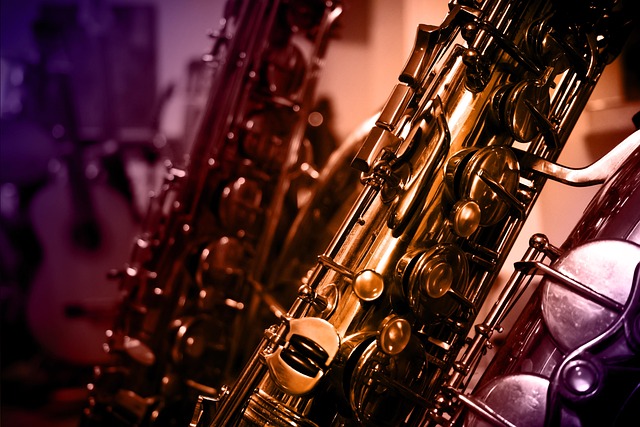The Soulful Sound: Exploring Blues in the Entertainment Industry
In the vibrant tapestry of music, few genres evoke the depth of emotion quite like blues. With its roots tracing back to the African American communities in the Deep South, blues music encapsulates the essence of struggle, heartache, and resilience. This soulful sound has not only played a significant role in shaping the music industry but has also transcended into various forms of entertainment—from electrifying concerts to captivating cinema.
Concerts dedicated to the blues are more than just musical gatherings; they are emotional journeys. Whether it’s the raspy voice of a legendary performer or the intense strumming of a guitar, each note reverberates with stories that resonate with the audience. Artists like B.B. King and Muddy Waters have paved the way for future generations, and their influence can still be felt in live performances today. Attending a blues concert is akin to stepping into a world where every heartache is shared through music, creating a profound connection between the artist and the audience.
Blues music also plays a pivotal role in festivals around the world. Events like the Chicago Blues Festival and the New Orleans Jazz & Heritage Festival showcase the genre’s rich heritage while highlighting contemporary interpretations. These festivals bring together blues aficionados and newcomers alike, fostering a sense of community through shared passion. The energy of a crowd swaying to the rhythm of the music creates an atmosphere that is both electric and intimate—a true celebration of the soulful sound.
Beyond the stage, blues has found its way into cinema as well. Films like Resistance” and “Cadillac Records” not only chronicle the lives of blues musicians but also highlight the profound impact of this genre on culture and society. The storytelling in these films often reflects the struggles and triumphs of the artists, helping to humanize their experiences and bringing the blues’ rich history to life for audiences around the globe. Music and film blend effortlessly, leaving viewers with a deeper understanding and appreciation for the soulful sound.
Moreover, the music industry has embraced blues and incorporated its elements into various contemporary styles. From rock and jazz to hip-hop, blues influences can be heard in countless hits today. Artists like John Mayer and Gary Clark Jr. credit their sound to the blues, proving that its legacy adapts and thrives even in modern genres. The versatility of the blues genre allows it to remain relevant, as each new generation discovers its heartwarming melodies and poignant lyrics.
As we explore the landscape of the entertainment industry, it becomes clear that the blues is more than just a musical genre; it is a universally understood language that speaks to the core of human emotions. Its echoes in concerts, festivals, cinema, and the broader music industry continue to inspire both artists and audiences alike, ensuring that the soulful sound of blues will resonate for years to come.


